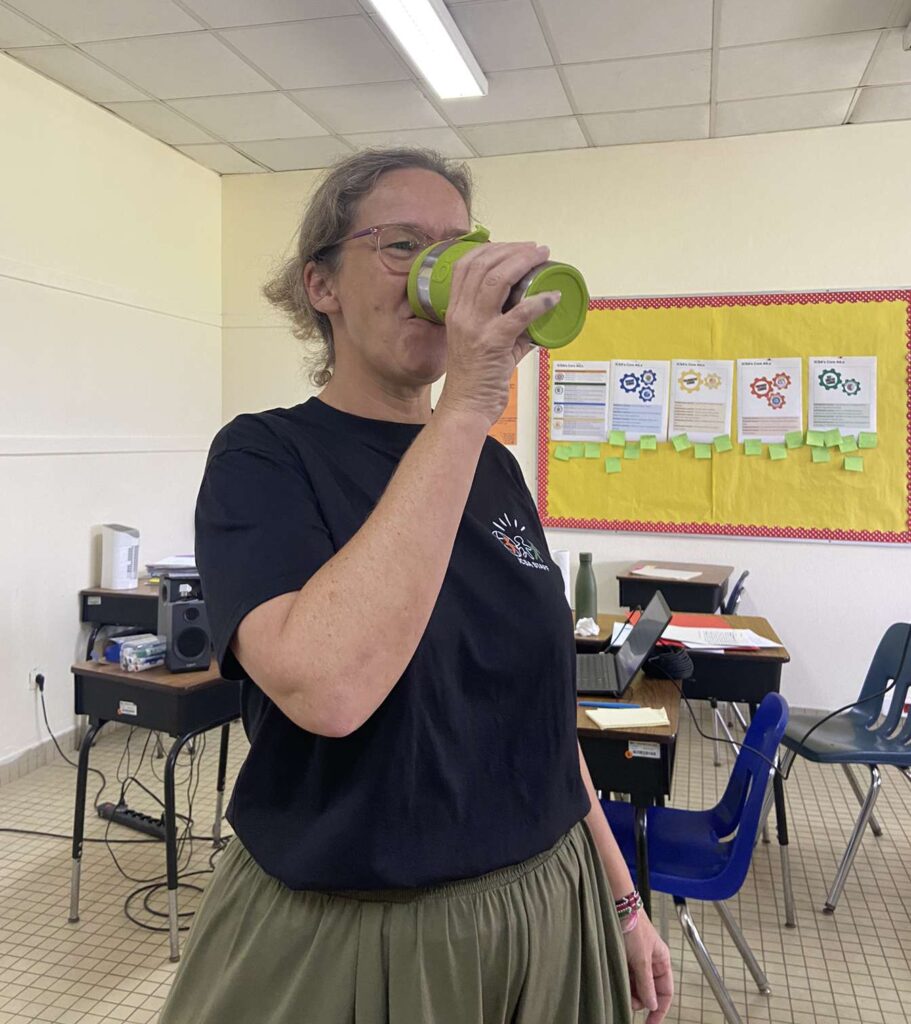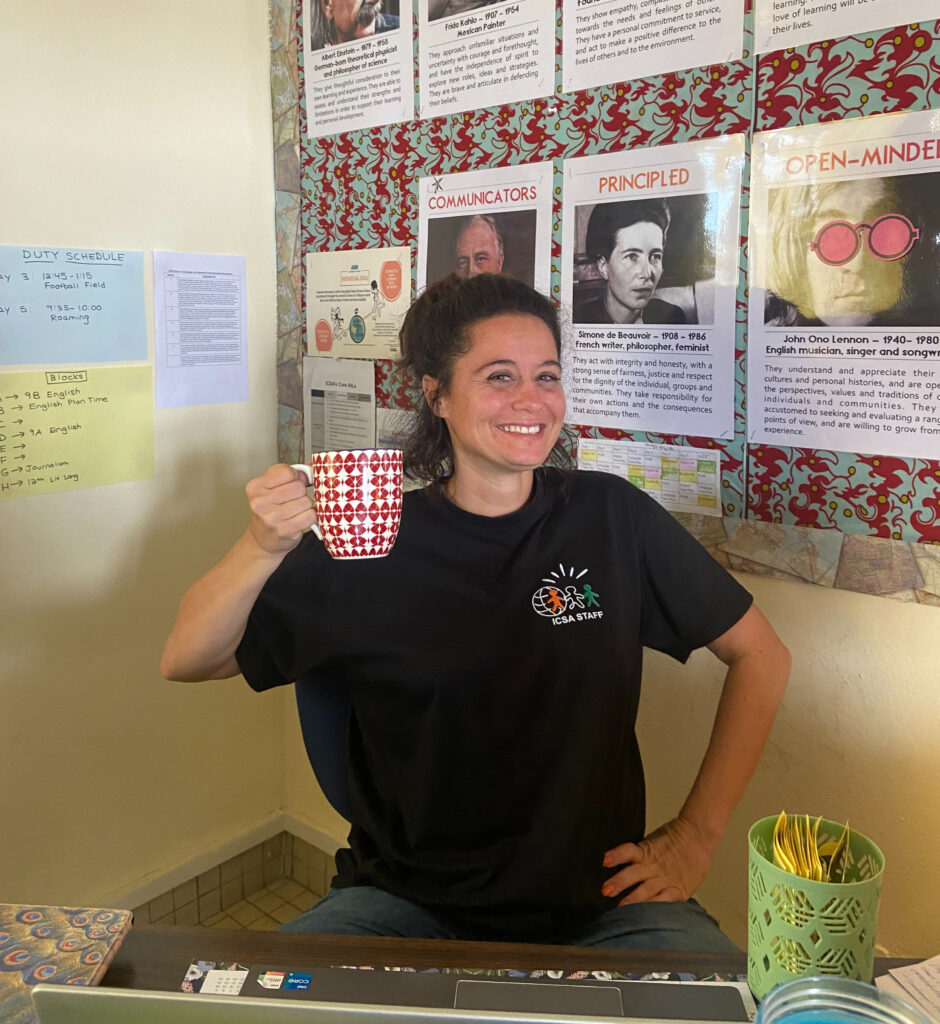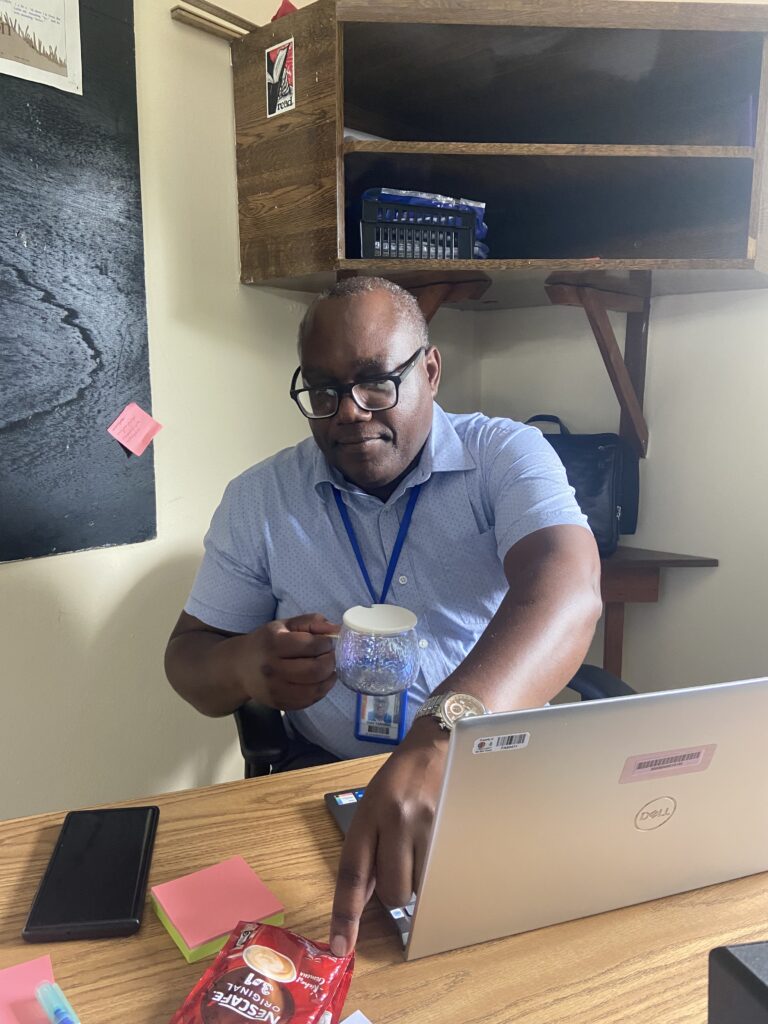For many adults, coffee is more than a drink—it’s the fuel that gets them through their day. In fact, around 63% of adults in the US drink coffee once a day. The coffee habits of Americans seem impressive, but you would be even more surprised by the habits of our very own teachers. Teachers are the third most coffee obsessed profession, right behind journalists and police officers.
This energy boosting drink allows teachers to stay alert during school hours and helps them get through the busy day. At ICSA, several teachers hold a mug of coffee, as if the mug is their very own best friend.
Meet the Coffee Champs of ICSA

We have an impressive three-way tie for the first category: Ms. Misha, Mr. Batty, and Mr. Pontius. Each one drinks around 10 to 15 cups of coffee a week. Surprisingly, Mr. Batty and Ms. Misha say they don’t consider themselves coffee addicts. Experts suggest drinking less than 2 cups of coffee a day to avoid addiction.
“I like the taste, and to wake me up or to give me some energy, and also because I am used to drinking tea or coffee while I work” – MS. Misha

Mr. Peters, Mr. Caley, and Ms. Seretti, who is always seen with a cup of coffee, are featured in an three-way tie. Surprisingly, their 15-20 cups of coffee a week weren’t enough to be considered the ultimate coffee champ of ICSA. These teachers enjoy drinking black coffee, drip coffee, and Arabica coffee, which has a sweet taste and is known for its exceptional taste.
“It just feels right while teaching.”
– Ms. Seretti

Photo Credit: Zarwa Hammad
Finally, the coffee champ of ICSA and the most coffee-addicted teacher is… Mr. Duke! He drinks more than 20 cups of coffee per week. He says that he has been drinking coffee for over 40 years, and his household commonly served it as a beverage.
Our English teacher always carries around sachets of Nescafe instant coffee, and mentions that its Kenyan blend gives the drink a familiar taste. Drinking coffee helps him think clearly and relax. A well-known fact is that drinking coffee makes you lose sleep; however, Mr. Duke says he can’t sleep without having a cup of coffee.
“Some people don’t take it at night, but we do, at the moment I actually take coffee before I go to bed. If I don’t take it, I won’t sleep.” – Mr Duke
The Perks of Caffeine for Teachers
Caffeine blocks adenosine receptors in our brain, which normally make us sleepy. This helps us to stay alert and focused, and one reason why teachers rely on coffee to get through their day. Besides being an energy boost, coffee has been linked to other health benefits. It is known to lower the risk of type 2 diabetes, Alzheimer’s, and Parkinson’s disease.
It is also linked to lower risk of heart and liver failures. Apart from health benefits, coffee encourages social connections. Ms. Misha enjoys drinking coffee with her family and friends, while for others coffee is like a social event. With all of these perks, it’s understandable why coffee is a favorite amongst our staff.
The Not-So-Great Side of Coffee
While coffee has its benefits, drinking too much of it can always have negative effects. High coffee intake leads to anxiety, nervousness, and increased stress levels. If an individual is too dependent on coffee, cutting back on caffeine can also cause withdrawal symptoms such as headaches.
Caffeine blocks the adenosine receptors in our brain which usually makes it harder to fall asleep, and leads to sleep deprivation and insomnia. Despite that, it is the opposite for ICSA’s Coffee Champ, Mr. Duke, who can’t sleep without a cup of coffee.
Despite the negative impacts of coffee, it remains a beloved beverage amongst the staff here at ICSA. Many of our teachers have tried to stop drinking coffee because of the negative impacts, but find it challenging to let go of their favorite drink. As long as they drink coffee in moderation, it shouldn’t be a problem. If it helps them do a great job at teaching us, then maybe there’s no harm in enjoying coffee.
For another entertaining article on our beloved teachers, check out this article written by Michele Rosiello, featuring Teacher Superlatives.



Wow! I really thought I would win this one, but Mr. Duke took the coffee champ 🙁
Love this article!!
Great job!